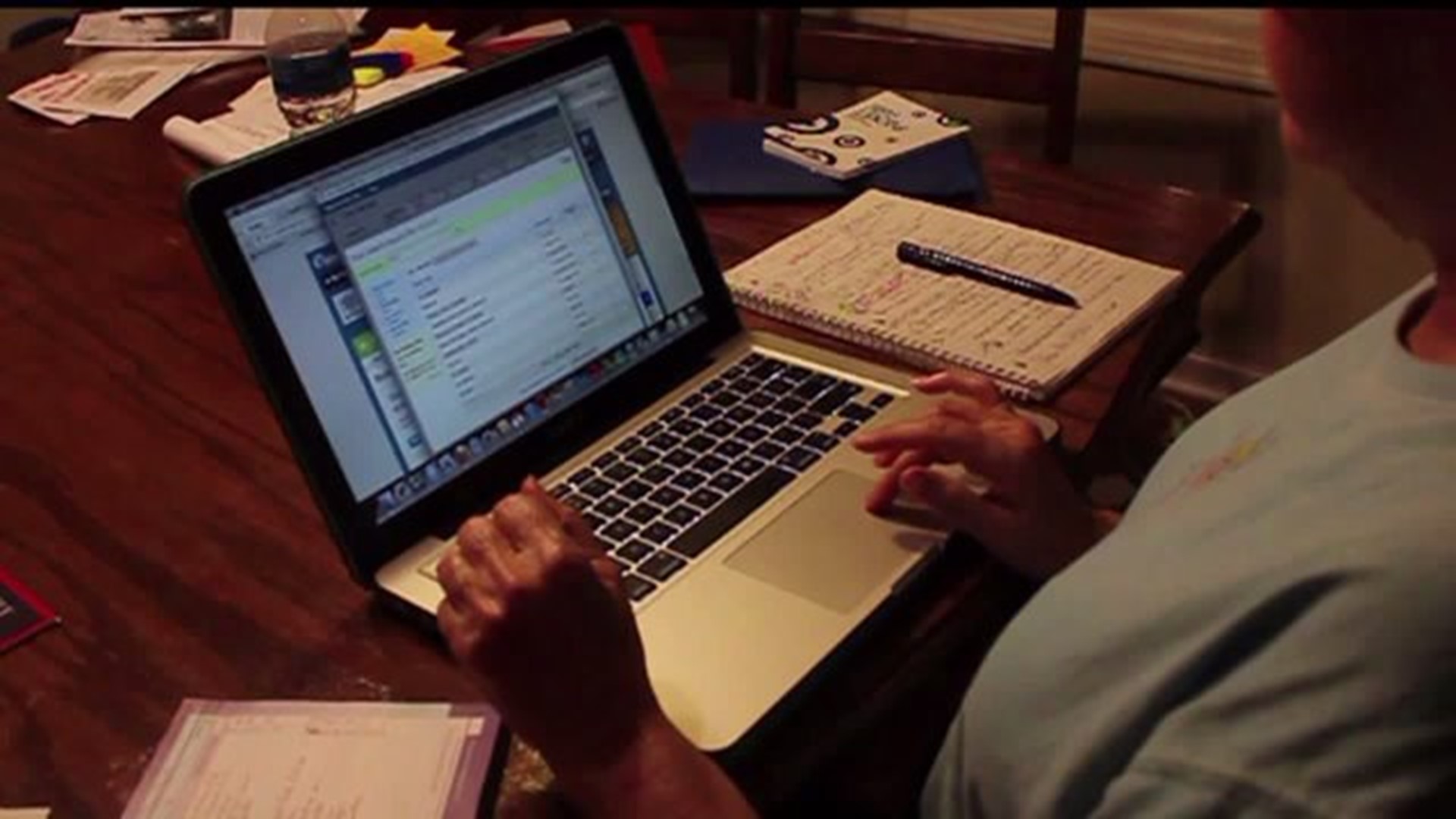HARRISBURG, Pa -- The thought of some hacker taking control of your personal computer is frightening.
It's called ransomware.
Hackers have been doing this for a while, but it's becoming more prevalent, so now the federal government is getting involved.
FOX43 finds out what you should do if your personal information is taken for ransom.
One of the scary things about ransomware is that experts say no one is immune.
As long as a hacker can get a hold of your files they can encrypt it, take it for ransom and expect you to shell out some serious cash and you still may never get your files back.
If this happens to your computer, it's enough to give you a headache.
But experts say that headache could be the least of your problems if this is happening to you.
That's because your computer may not have a virus - it could be taken for ransom.
"In the end it's all about money," said Andrew Hacker, a cyber security expert at Harrisburg University.
He says ransomware has been around for a while - but as technology gets better - so do the hackers.
"In the past year, the department of justice has reported that the instances have quadrupled," said Hacker.
Essentially, ransomware is when a hacker gains access to your files, encrypts them and then holds the files for ransom demanding you pay money in order to get your own files back.
How do hackers get to your documents in the first place?
"Either through scam emails or clicking on bad websites or the way you regularly get a virus," said Hacker.
Hacker says this used to be something bigger companies would worry about.
Mostly because the bigger the files usually meant a bigger payoff for the hackers.
Experts say no one is immune.
"If there are a million people and they get a 10% hit rate, that's 100,000 people. It's anywhere between 2-4,000 dollars or something like that they might as for, you're talking some big money there.
So what happens if your files are taken for ransom?
Experts say the hackers will likely ask for you to pay money to get the key or password to get your files back.
Hackers usually want you to pay in bitcoins.
That's a digital currency that is hard to trace and if you think you can crack the key yourself, think again.
Hacker said, "Chances are you're probably not going to get that lucky because a lot of the ransomwares are getting more sophisticated, the keys are harder the find, there's no way you can just kind of keep trying until you decrypt it."
"In a lot of cases, people do pay and they don't get the keys back so they don't get access to their files anyway."
There are websites out there that are trying to outsmart the hackers.
NoMoreRansom.org is one of them.
On the website, are keys that you can try to crack the codes with.
Also, if you're files are hacked you can try taking your device to a tech expert, apple store or geek squad - but there's no guarantee then either.
The cyber security expert at Harrisburg University says you could back up all important files like bank information, pictures and passwords and then store it all on an external hard drive, just in case.
"If they're documents that you really need or depend on, yeah you can be in trouble there."
Experts say one way to prevent this, hacker says is to keep your anti-virus up to date.
The federal trade commission also recommends making sure your anti-virus is from a reputable company, so before you download anything check reviews.
Also, things like iCloud, dropbox and other shareable platforms make it easier for hackers not only to get a hold of information on your computer, but all of your other devices too.

